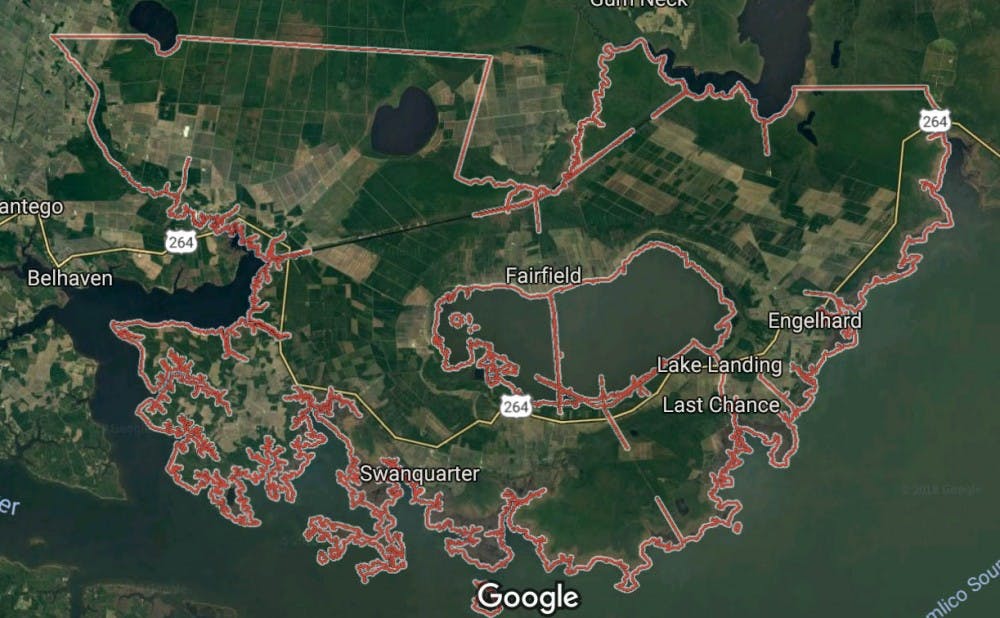With the purchase of rights to a roughly 16-square mile "carbon farm" in eastern North Carolina, Duke has potentially taken a big step towards carbon neutrality.
The Hyde County farm could store enough carbon to help neutralize most of the University’s emissions to help it hit its goal of achieving carbon neutrality by 2024, according to a release. To reach that goal, Duke would need to cut its emissions by 84 percent in the next six years.
The farm—on peatlands that were once drained for agriculture use—works by locking carbon in the soil and plants by using “enhanced land management and conservation practices.” It's a new practice aimed at combating global warming.
“By rewetting and reverting these former peatlands to their natural wetland state, we can significantly increase their capacity for long-term carbon storage,” said Curtis Richardson, director of the Duke University Wetland Center, in the release.
Richardson said he hopes that the carbon farm will be the largest in the eastern United States, if not across the whole country. Carbon farms can store up to 10 or 15 times more carbon than regular agricultural land, Richardson noted. Leftover carbon credits could be sold by the University.
Sixteen percent of Duke's emissions come from employees that commute to work, according to a recently released report. As part of its vision to become carbon neutral, Duke plans to create better access to transit, to boost carpool networks and to back electric vehicle usage, among other things.
Duke has also shifted away from coal and natural gas, and its new buildings use less energy.
“Left undisturbed, carbon in pocosins can remain stored for millennia due to the unique natural antimicrobial compounds that prevent the waterlogged peat from rapidly decaying and releasing the carbon back into the atmosphere,” Richardson said. “The presence of these compounds acts as a protective mechanism or latch—greatly reducing the release of greenhouse gases, even during periods of drought.”
Get The Chronicle straight to your inbox
Signup for our weekly newsletter. Cancel at any time.

Managing Editor 2018-19, 2019-2020 Features & Investigations Editor
A member of the class of 2020 hailing from San Mateo, Calif., Ben is The Chronicle's Towerview Editor and Investigations Editor. Outside of the Chronicle, he is a public policy major working towards a journalism certificate, has interned at the Tampa Bay Times and NBC News and frequents Pitchforks.

